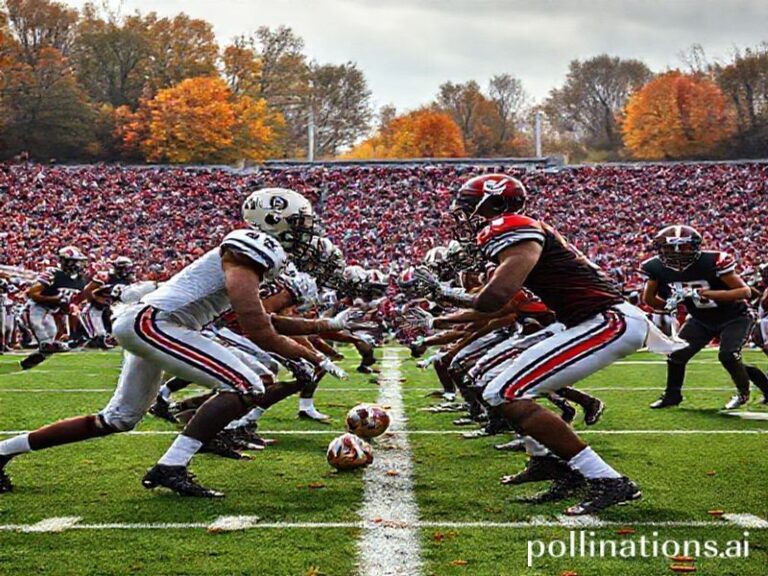Michael Palin: The Accidental Diplomat Who Conquered the World with a Smile and a Scone
Michael Palin: The Diplomat We Forgot We Needed
by Dave’s Locker Foreign Correspondent-at-Large
In an age when most global “statesmen” can’t get through a press conference without threatening to glass someone on Twitter, it is instructive to remember that one of Britain’s most effective cultural ambassadors remains the man who once attempted to purchase a Norwegian cheese in a dead parrot sketch. Michael Palin—Monty Python alumnus, BBC peripatetic wanderer, accidental cartographer of post-colonial guilt—has spent four decades doing what the Foreign Office now outsources to YouTube influencers. He travels, he listens, and, most unnervingly of all, he apologises with sincerity.
Palin’s canon is deceptively simple: a polite Englishman circumnavigating the planet in increasingly rumpled linen, armed with nothing more lethal than curiosity and a BBC expense account. Yet the geopolitical fallout has been considerable. When “Around the World in 80 Days” aired in 1989—just as the Berlin Wall was considering early retirement—viewers from Seattle to Smolensk discovered that a wry Lancastrian could make the Soviet border guard chuckle. Soft power, it turns out, is cheaper than Trident and considerably less radioactive.
By 1992’s “Pole to Pole,” Palin had become the UN’s favourite dinner-party anecdote: the non-aligned nation-state of Amiability. The series coincided with the IMF’s cheerful demolition of the Argentine economy; Palin’s gentle befuddlement at hyperinflation in Ushuaia provided the perfect counter-programming to nightly footage of riots. Viewers in 71 countries learned that economic collapse looks marginally less apocalyptic when soundtracked by a man humming “The Lumberjack Song” under his breath.
His later expeditions—“Full Circle,” “Sahara,” “Himalaya,” the one where he accidentally started a minor border incident by asking a Tajik goatherd for directions—mapped the fault lines of globalisation before Thomas Friedman could find his moustache. Palin, ever the accidental cartographer, traced supply chains of tea and misery with equal diligence. Somewhere between Timbuktu and Lhasa he became the only Westerner to pronounce “Kyrgyzstan” correctly on the first try, a feat still absent from NATO’s strategic objectives.
The cumulative effect? An entire generation of foreign-policy students who associate Britain less with gunboats and more with genial self-deprecation. It is perhaps no coincidence that the first international petition to grant Palin honorary citizenship came from Iran, whose foreign minister cited “superior moustache diplomacy.” When the BBC suggested a travelogue through the DRC in 2018, the Foreign Office quietly shelved a £3 million soft-power initiative on the grounds that “Palin’s already done it, and he bought the local warlord a scone.”
Critics, mostly think-tankers who haven’t left a conference room since 2006, dismiss Palin’s oeuvre as poverty voyeurism wrapped in linen privilege. They miss the point. Palin’s camera crews never outnumber the subjects; his translator is usually the only other Westerner for 300 miles. In an industry now dominated by drone shots and influencer brunches, this counts as radical restraint. Moreover, his willingness to broadcast his own ignorance—he once attempted to compliment a Mongolian wrestler on his “nice dress”—has done more for cross-cultural humility than a thousand TED Talks.
As COP delegates bicker over carbon credits and nations weaponise nostalgia, Palin’s back catalogue streams nightly to insomniac diplomats on every continent. The message is subversive: the world is not a spreadsheet of grievances but a series of improbable stories, best approached with curiosity, cash for local handicrafts, and an acceptance that your luggage will never arrive on time.
Palin himself, now 80 and semi-retired in Gospel Oak, claims he was “just looking for a decent cup of tea.” History will record that he found something rarer: an antidote to the performative outrage that passes for international discourse. In the meantime, the rest of us can binge-watch the evidence that the most potent export Britain ever produced wasn’t empire, or even The Beatles, but a man polite enough to apologise to a glacier for global warming.







